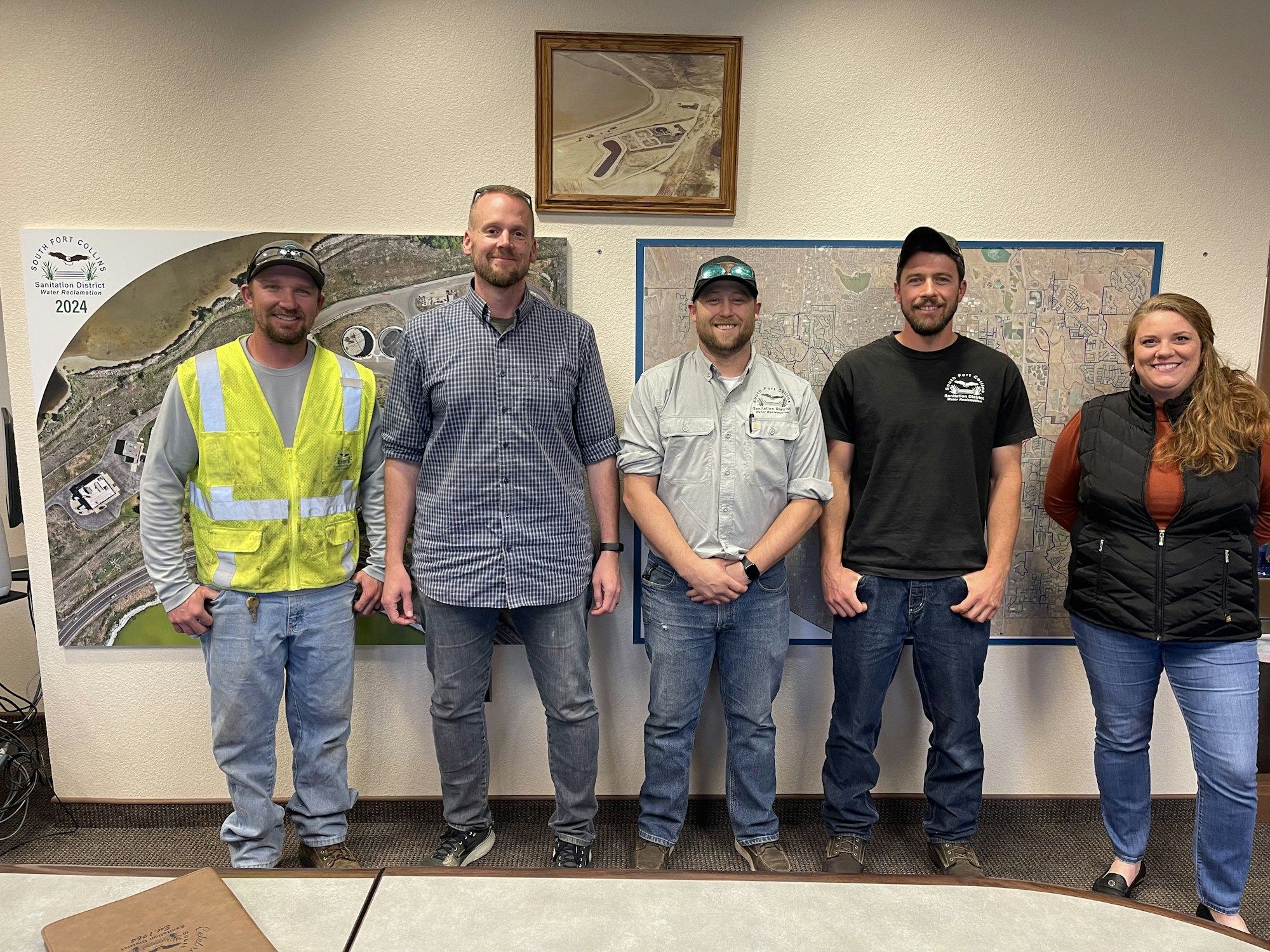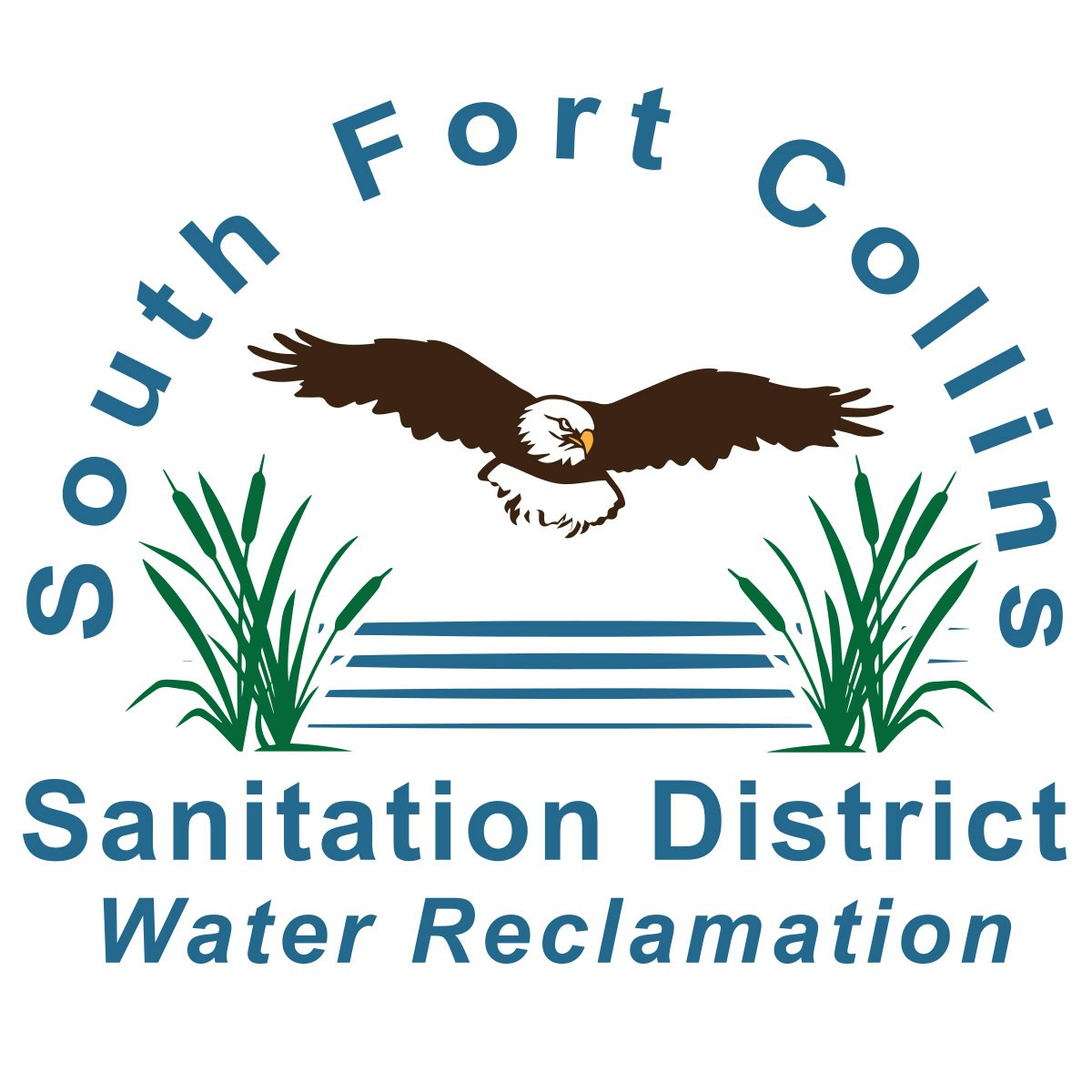Member Spotlight: South Fort Collins Sanitation District

July 23, 2025 | Charmaine Skoubo
At South Fort Collins Sanitation District (SFCSD), safety isn’t just a checklist, it’s a deeply rooted part of the organizational culture. What began as a compliance-driven approach has transformed into a proactive, employee-led safety model focused on transparency, accountability, and continuous improvement. From hands-on training and real-time reporting tools to visible leadership engagement and a dedicated Safety Committee, SFCSD sets a high standard for what it means to prioritize safety in every aspect of operations.
The first major step in strengthening their safety culture was the formation of an employee-led Safety Committee, an initiative that brought safety discussions directly to the people most affected by them.
“The committee meets monthly to review safety observations, near misses, and upcoming training topics,” says Derik Caudill, Regulatory Compliance and Collection System Manager at SFCSD. “Every meeting concludes with a facility walkthrough, where committee members identify and document safety issues in real time using a mobile app. These observations are logged, reviewed, and assigned to the appropriate manager for resolution—ensuring nothing falls through the cracks.”

By empowering frontline staff to lead these efforts, the district has created a system of ownership and accountability that extends across departments. Employees now have a formal, respected avenue for sharing safety concerns—and the tools in place to ensure their voices are heard and acted upon.
Keeping monthly safety trainings fresh, engaging, and practical is another cornerstone of SFCSD’s culture. Rather than relying on passive lectures or slide decks, the district brings safety to life through dynamic, hands-on sessions that reflect the real challenges staff face in the field.
“Hands-on exercises and scenario-based discussions are regular features,” Derik explains. “We also rotate presenters, use real equipment in demonstrations, and keep sessions short and specific.”
This approach not only increases retention but keeps staff actively participating in their own safety education.
Relevance is key, and SFCSD makes it a priority to tailor content to what employees are actually experiencing on the job.
“We regularly ask staff what they’re struggling with or would like more information about. This has led to focused trainings on topics like electrical safety, overhead rigging, and confined space entry, topics that are both timely and relevant to our work environment.”
While many organizations emphasize the importance of leadership in safety, SFCSD sets itself apart by making leadership visibility and involvement a consistent reality.
“Our leadership team is committed to cultivating a culture where safety is both modeled and supported at every level,” says Derik. “Senior staff regularly participate in safety meetings, trainings, and walkthroughs. Not just to show support, but to stay engaged in the realities our field crews and plant operators face.”
This hands-on leadership reinforces the idea that safety is not just a compliance issue, but a shared value that applies equally to everyone, from executives to operators. When employees see leadership taking safety seriously, they’re more likely to follow suit.
Equally important is SFCSD’s open-feedback and accountability system, which ensures that employee observations aren’t just filed away, they’re acted on.
“When safety observations are submitted by employees, they’re not only discussed in committee, but also sent directly to department managers, tracked for resolution, and revisited to ensure follow-through,” Derik adds.
“This level of transparency shows staff that their input matters and builds trust across teams.”
The culture of safety extends all the way to the top. The district’s Board of Directors plays a crucial role in supporting and funding safety initiatives, consistently recommending and approving expenditures not only for equipment and training but also for employee engagement in the program. This top-down and bottom-up alignment reinforces safety as a true organizational priority.
For other sanitation districts looking to create or revitalize a culture of safety, SFCSD offers clear and actionable advice: start with leadership and build with your people.
“Start by empowering your employees and ensuring your senior managers are fully supportive of the approach,” Derik advises. “Without engaged management and leadership, it’s hard for staff to take safety seriously. Ultimately, managers shape the safety culture.”
Once that leadership is in place, it’s critical to give employees the tools and support they need to succeed.
“Give employees the tools, training, and support to actively participate in the safety process, and then act on what they tell you. Build a structure that encourages open dialogue, follows through on concerns, and recognizes good safety behavior.”
He adds that effective systems don’t have to be complex—but they do have to be consistent.
“Implement simple systems for tracking safety issues and ensure leadership is actively involved in both addressing and modeling safe practices. And finally, treat safety as a continual process. Culture doesn’t shift overnight, but with consistency and collaboration, it becomes part of how your organization operates every day.”
Looking ahead, South Fort Collins Sanitation District is continuing to raise the bar with new tools and training initiatives designed to enhance both safety and professional development.
“We’re currently developing a full training series tied to our Standard Operating Procedures (SOPs), which will be eligible for continuing education units (CEUs) through the Colorado Certified Water Professional (CCWP) program,” Derik shares. “These trainings will cover field operations, PPE, and more.”
In addition, the district is expanding its use of mobile technology to capture and respond to safety concerns in real time.
“All staff have access to a mobile app that allows them to log safety observations with comments and photos. These entries are emailed in real-time to the Safety Committee and stored on a dashboard we review monthly. By expanding how we analyze and act on this data, we’re working toward a more predictive and preventative safety model.”
With a strong foundation of employee involvement, leadership support, and a commitment to ongoing improvement, South Fort Collins Sanitation District continues to lead by example. Their evolving safety program not only protects staff and infrastructure but also reinforces a culture where every team member feels heard, empowered, and responsible for maintaining a safe workplace.
